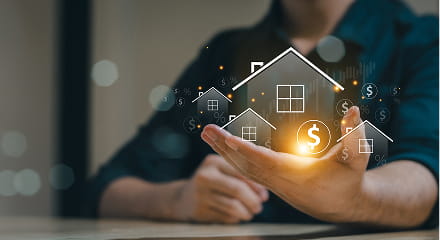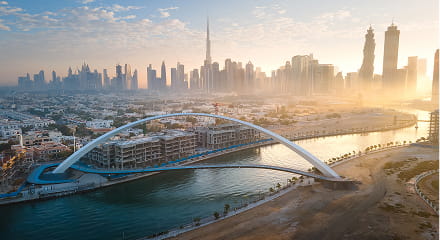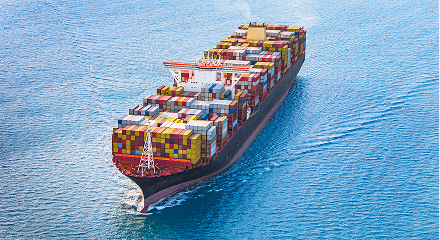Getting your utilities sorted in the UAE is simple. Here is a step-by-step breakdown:
1. "Powering Up Your New Home": Understanding Electricity and Water Providers Across the UAE
The UAE has different providers for electricity and water depending on the emirate. In Dubai, it's the Dubai Electricity and Water Authority (DEWA). In Abu Dhabi, it's the Abu Dhabi Distribution Company (ADDC) and Al Ain Distribution Company (AADC). For Sharjah, it's the Sharjah Electricity, Water and Gas Authority (SEWA). The Northern Emirates (Ajman, Fujairah, Ras Al Khaimah, and Umm Al Quwain) are generally covered by the Federal Electricity & Water Authority (FEWA), although some areas might have local providers. Setting up utilities is crucial, and thankfully, the process is generally straightforward across the board.
First, it's necessary to gather the required documents. This includes a passport copy, visa copy (if available), tenancy contract (attestation requirements may vary by emirate), and Emirates ID (if available). If the Emirates ID isn't yet available, don't panic! The passport and tenancy contract will usually suffice. Check the specific provider's website for their exact document requirements.
Next, visit the relevant utility provider's website or app (if available). Most have user-friendly online portals. Create an account, upload the required documents, and pay the security deposit. The deposit amount varies depending on the size of the property and the emirate's regulations, but it's a refundable amount that will be returned when the account is closed. The online payment method is quick and convenient. Once everything is submitted, a confirmation email will be received, and the account will be activated within a day or two. Remember to keep the account number handy for future reference!
2. "Etisalat or du?": Connecting to the Digital World Across the Emirates
Now, let's talk about internet and phone services. In the UAE, the two main providers are Etisalat and du. While their coverage is nationwide, service availability and specific packages might vary slightly depending on the emirate. It's wise to research both extensively before making a choice. Consider factors like internet speed, data allowances, package prices, and customer service reviews specific to your area.
Visiting a local Etisalat or du store to discuss options is a good idea. Bring a passport copy and visa copy (again, if available). The representative can help choose a suitable package and explain the installation process. A setup fee will need to be paid, and the address provided for the technician to come and install the equipment. The installation usually takes a few days, so it's recommended to do this as soon as accommodation is secured. Alternatively, both Etisalat and du have excellent online portals where everything can be done from the comfort of home. Don't forget to ask about bundled packages that include TV services, as they can often save money. And remember, understanding money management options is key, so compare prices carefully!
3. "Gas, Glorious Gas!": Cooking with LPG (or Central Gas) in Your Emirate
Depending on the property and the emirate, there might be piped gas (central gas) or a need to arrange for LPG (Liquefied Petroleum Gas) cylinders. In some emirates, central gas is more common in newer developments. If the building uses LPG cylinders, contact a local gas supplier – there are several reputable companies in each emirate – and arrange for delivery.
It will be necessary to provide the address and a copy of the tenancy contract. The supplier will deliver the cylinder and connect it to the stove. It's important to ensure that the connection is done safely and by a qualified technician. Also, learn about safety precautions, such as checking for leaks regularly and storing the cylinder in a well-ventilated area. This is one area where it's worth spending a little extra to ensure safety and peace of mind. If your building has central gas, the connection process will usually be handled by the building management.
4. "Banking on Convenience": Setting Up a UAE Bank Account (Essential for All Emirates)
While not strictly a utility, having a local bank account is essential for paying bills and managing finances in the UAE, regardless of which emirate you reside in. A local account makes paying utility bills much easier. FAB offers online banking services, which allow for setting up automatic payments.
5. "The Ejari Enigma (or Equivalent)": Your Tenancy Contract is Key!
The Ejari is the tenancy contract registration system used in Dubai. Other emirates have similar systems, though the names might differ. In Abu Dhabi, for example, the Tawtheeq system serves a similar purpose. Regardless of the emirate, the registered tenancy contract is the key to unlocking many services, including setting up utilities.
Ensure the landlord registers the tenancy contract with the relevant system in your emirate. Once registered, a certificate or registration document will be received, which is needed to provide when applying for various services. If the landlord hasn't registered the contract, it can be through the relevant government department's website. Don't underestimate the importance of this registration; it's proof of residency and a vital document for navigating life in the UAE.
6. "Decoding the Dirham": Understanding UAE Billing Cycles
Understanding the billing cycles for utilities is crucial for budgeting and avoiding late payment fees. While most utility providers issue bills monthly, there might be slight variations in the billing dates and payment deadlines depending on the emirate and the specific provider.
Set up online accounts with the relevant utility providers in your emirate to track bills and payment deadlines. Also, opt for automatic payments to avoid missing any deadlines. Many banks in the UAE offer bill payment services, which allow for paying bills directly from the bank account. Understanding the banking system and billing cycles is essential for effective money management as an expat in the UAE.
7. "Deactivating Your Account": Closing Utility Accounts When Leaving
When it's time to leave the UAE, remember to close utility accounts to avoid any future charges. The process for closing accounts can vary slightly depending on the emirate and the utility provider.
Contact the relevant utility providers in your emirate a few weeks before the departure date to inform them of the intention to close the accounts. Provide account details and the departure date. Most providers require a final meter reading, which can often be submitted through their app or website. They will then calculate the final bill and refund the security deposit. Etisalat/du also requires the return of any equipment, such as routers and set-top boxes. Make sure to keep all receipts and confirmation emails as proof of closure.
8. "Beyond the Basics": Tips for a Smooth Transition (Across All Emirates)
Beyond the technicalities, here are a few extra tips:
- Start Early: Don't wait until the last minute to set up utilities. The sooner you start, the less stress there will be.
- Keep Copies: Make copies of all documents, including the passport, visa, tenancy contract, and Emirates ID.
- Ask for Help: Don't be afraid to ask for help from colleagues, friends, or online forums. There are plenty of expats in the UAE who have been through the same process and are happy to share their experiences. Local community groups in each emirate can be particularly helpful.
- Embrace the Culture: Remember that things might be done differently in the UAE than in the home country. Be patient, respectful, and open to learning new ways of doing things.
- Consider a Relocation Service: If feeling overwhelmed, consider hiring a relocation service to help with the process. They can handle everything from setting up utilities to finding accommodation. Make sure they have experience in the specific emirate you're moving to.








